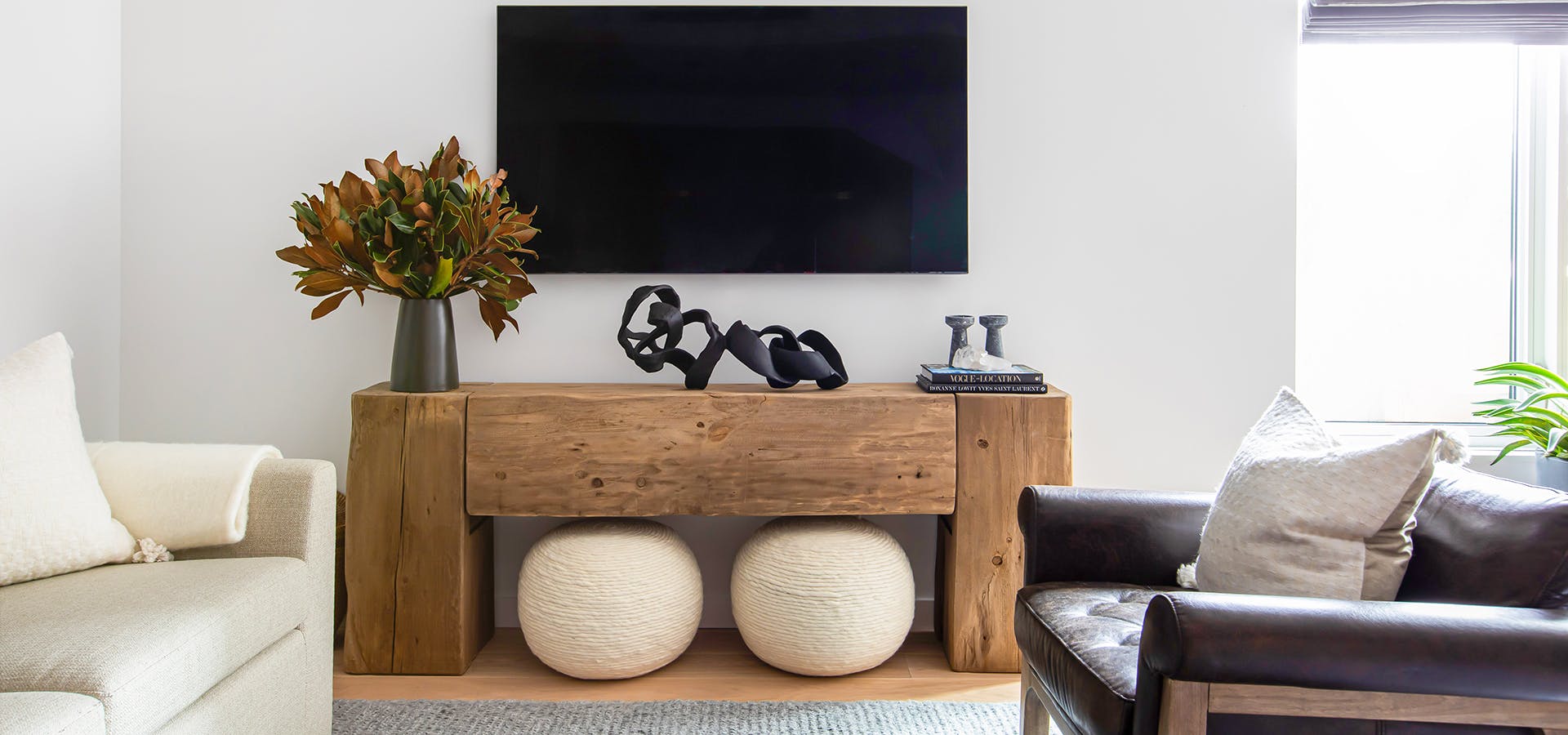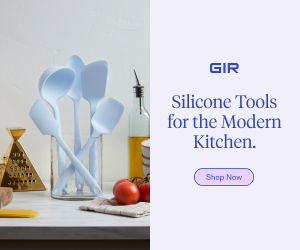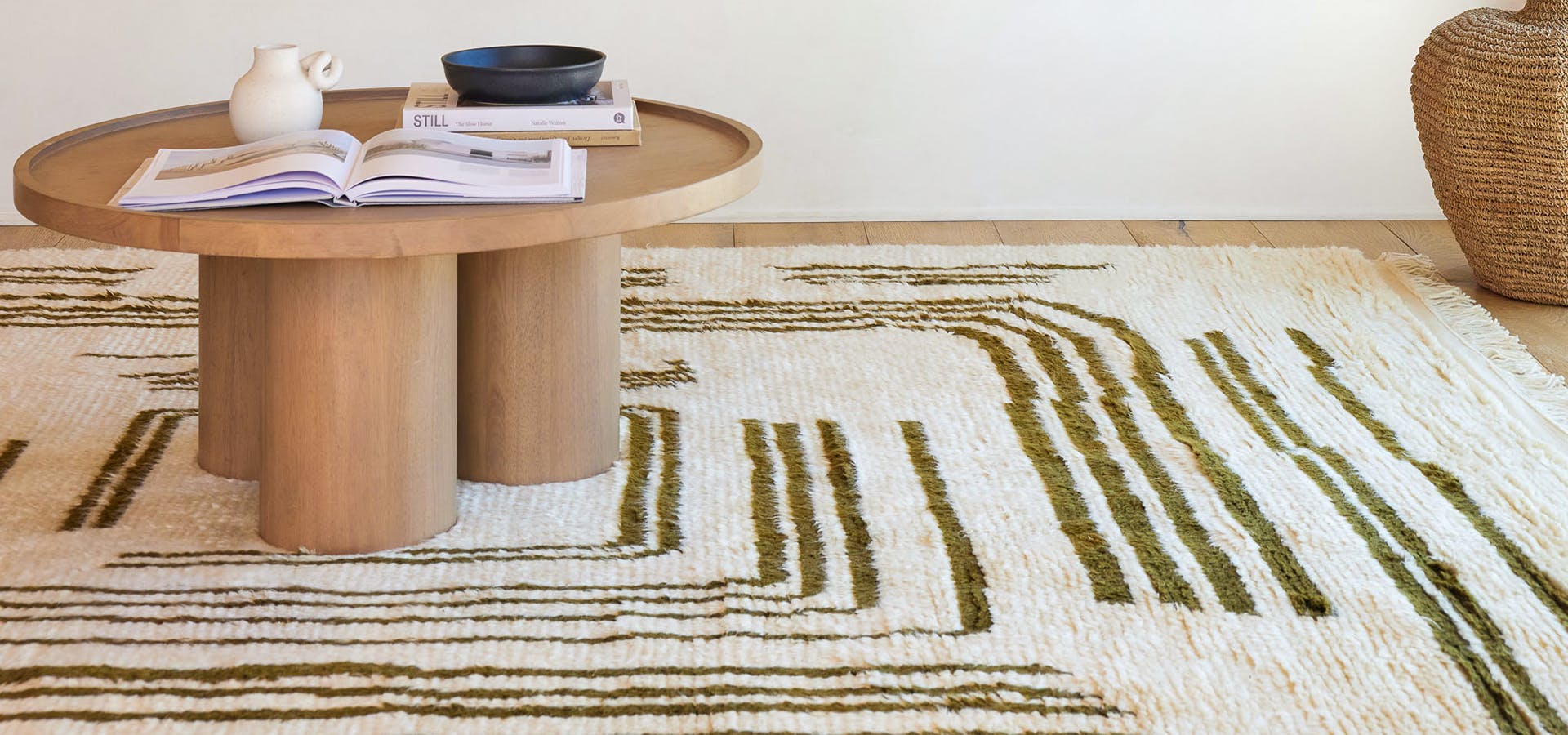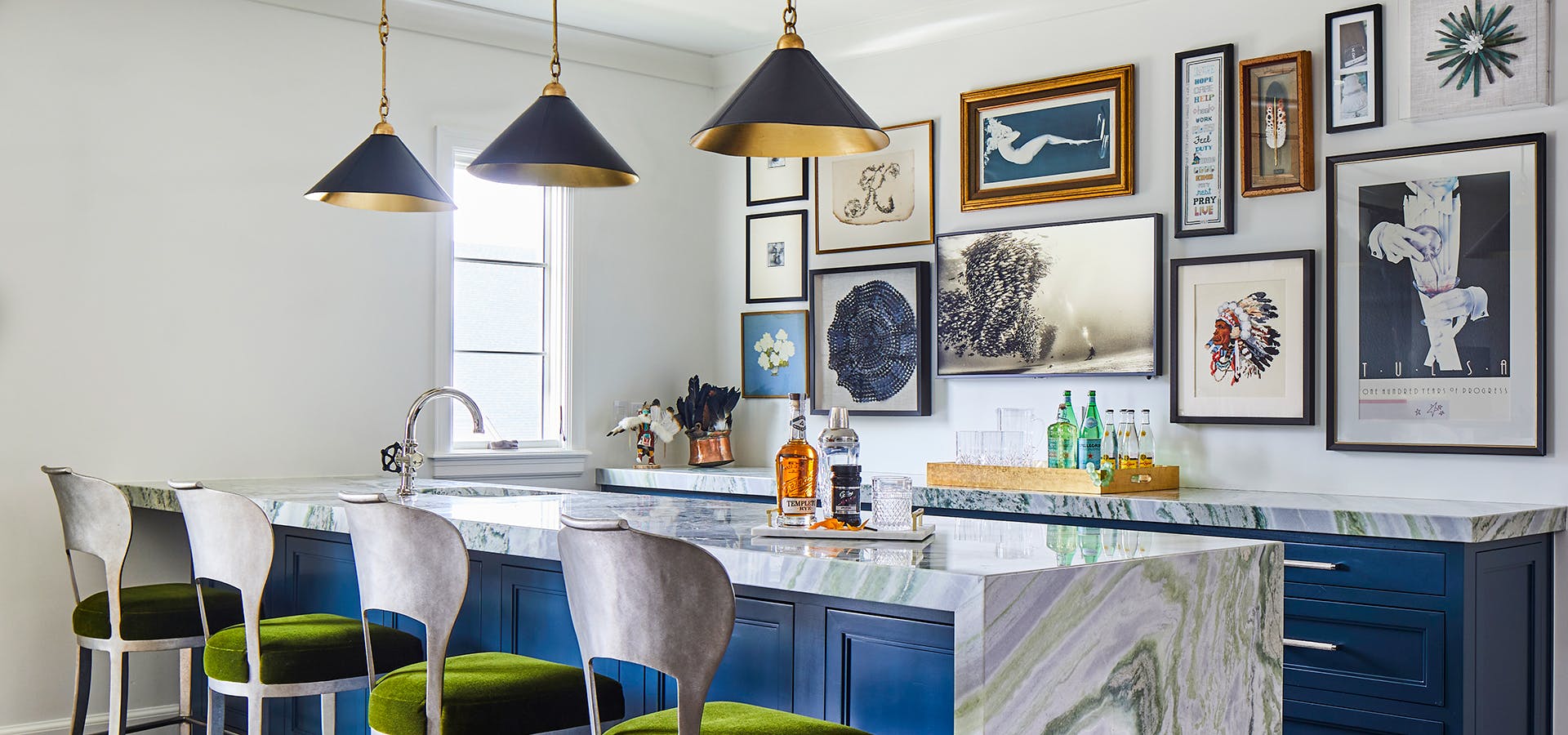Designing an apartment entirely via phone and online while living in Bermuda during the pandemic was the ultimate challenge for Charlotte, North Carolina–based design maven Emily Hodge, founder of Emily Hodge Design Group. “At the time, I was living and working in Bermuda, without social media or a website,” says Hodge, who was recommended for the project by a mutual friend. “The client had just purchased his first home in a new construction, multi-family building in Brooklyn. All of the finishes had been pre-selected by the builder, so my task was to furnish.”
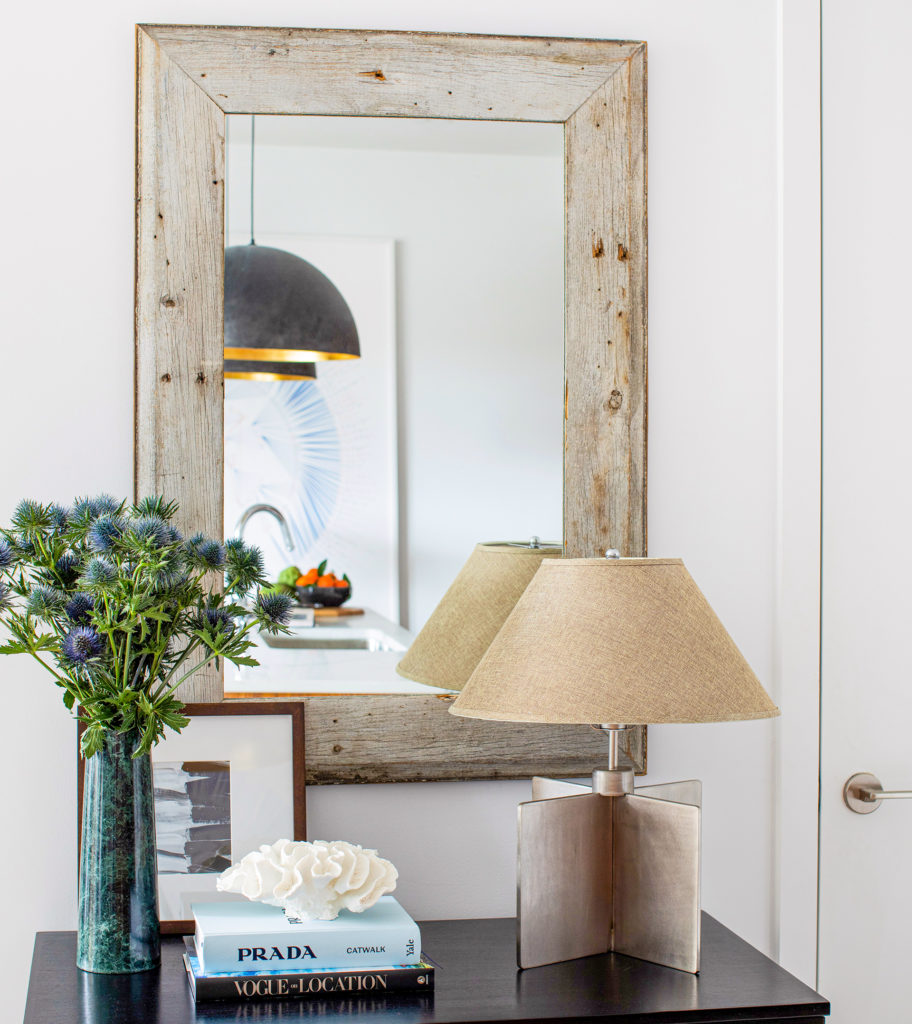
But, according to Hodge—who worked for the likes of Nate Berkus and Kelly Hoppen before launching her own firm eight years ago—the client had a very clear design vision. “He described the look as ‘industrial modern,'” explains Hodge. “And, he came to the table knowing the exact lounge chairs and dining chairs he wanted, so we based the rest of the design around those pieces.”
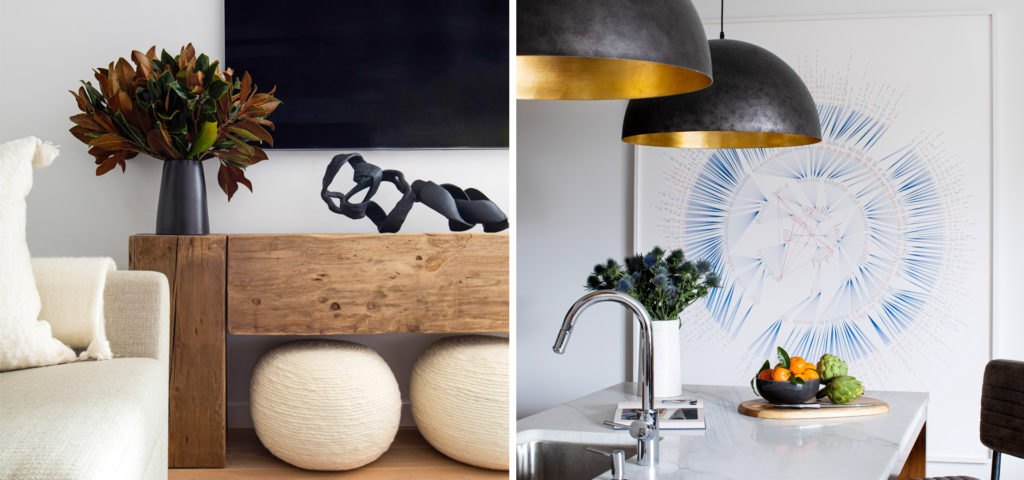
One major design challenge was the dining room, with a custom banquette Hodge designed herself using a diamond-patterned fabric by Larsen and a faux leather from Designers Guild. “My challenge in this space was to make it cozy enough for one, but flexible enough to entertain for 20,” adds Hodge. “Since the square footage was limited, the banquette [made locally by Howard’s Upholstery in Brooklyn] allowed us to condense the dining space, and spread out the living space. We also snuck in a hidden hatch in the banquette with removable seat cushions where he could store his outdoor furniture cushions.” The space also features a table by Noir, a light fixture by Regina Andrew, and dining chairs by Timothy Oulton. “The banquette was my very first fully custom piece that I designed myself, so that was really fun to see the details come to life,” says Hodge. “Function is always at the forefront of my mind when designing, so it was really fun to check that box, along with creating a one-of-a-kind piece of furniture.”
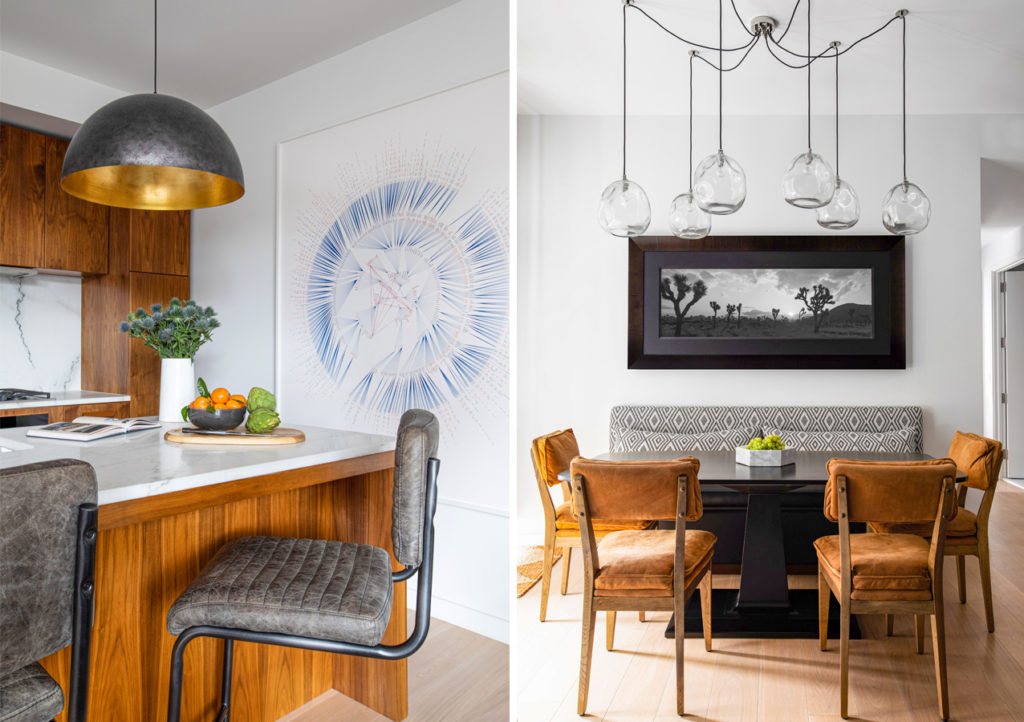
In the Master bedroom, Hodge selected a cozy, charcoal-hued felt wallpaper, nightstands and bedding from RH, and a diptych entitled, Say My Name, So You Can See Me by Los Angeles–based street artist Retna. “I absolutely love his bedroom,” says Hodge. “We used a Phillip Jeffries felt paper on the walls, and it emulates this coziness that you just can’t pick up through the lens.
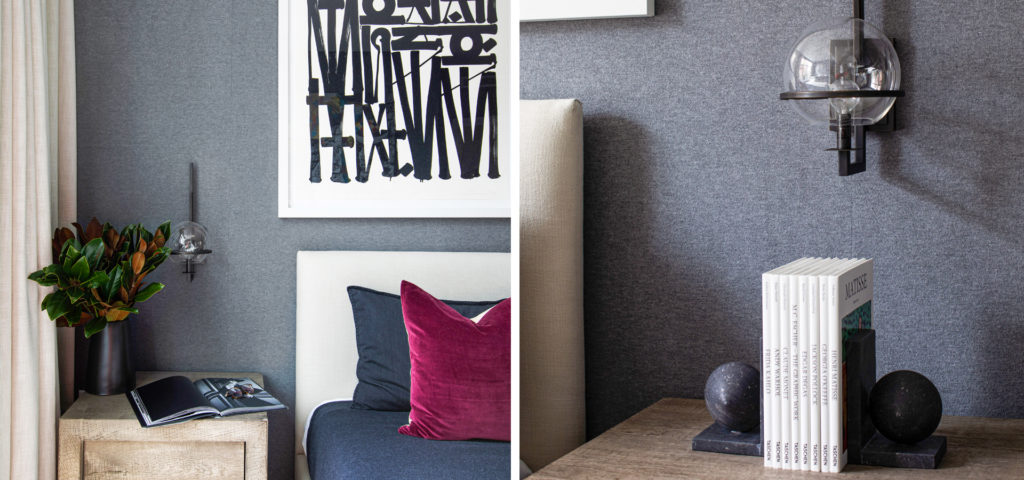
Hodge’s Design Rules

Consider The Big Picture
“Two of the most important things to consider are scale and proportion. I like to put furniture in elevation just to make sure we haven’t overlooked the height of a side table or scale of a sconce.”
Set The Intention
“It’s also imperative to first think about how you or your client intends to live in the space. ‘How do you entertain in the space?’ ‘Are there any specific functions you need it to fulfill?’ Wrapping your head around these questions can help immensely with space planning and deciding what types of furniture to put in the space.”
Express Your Feelings
“I also like to consider what we want the room to feel like. Sometimes it’s more than just choosing beautiful pieces that work well together. I love creating a space that has a mood: cheery or moody and inviting. It can differ from room to room within the same house and everything seems to work together.”
Be Discerning
“Only buy pieces you absolutely love. If you don’t love it, or as a designer, if you wouldn’t put it in your own home, move on.”



